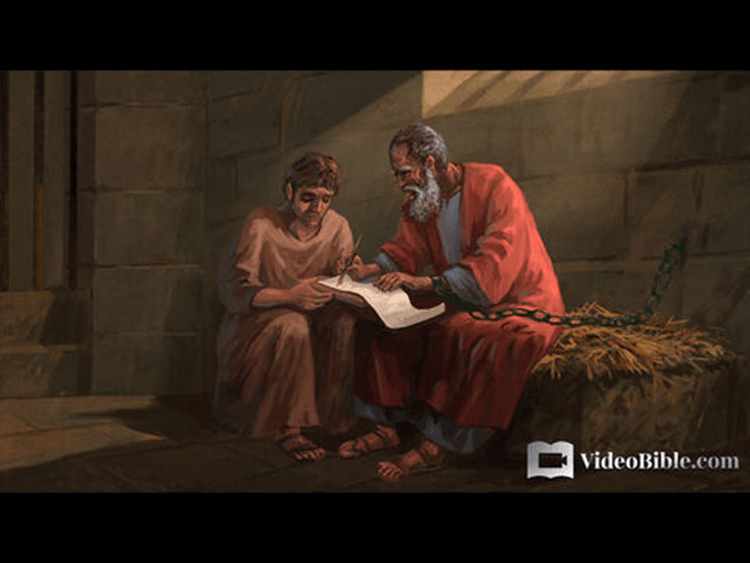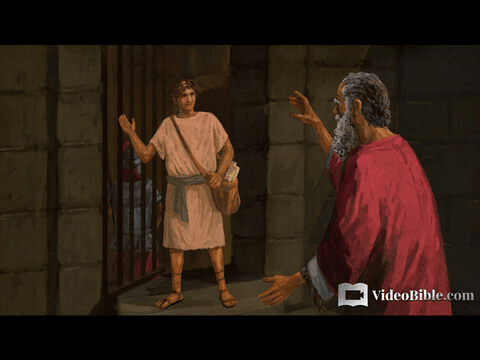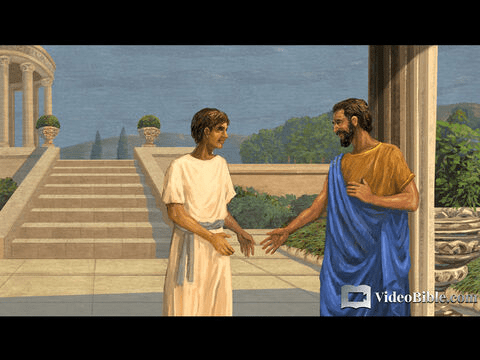Welcome to a Three Part Study of the Letter to Philemon with Part One – based on the theme – Returning a Favour Philemon 1- 7
Background
The letter to Philemon, by the Apostle Paul, is the only personal letter included in the New Testament compared to his other writings to family, church members and those influential within his local society. Paul in a number of his letters does refer to himself as an apostle but in this short letter he presents himself as a friend who is a prisoner of Christ writing to a friend and asking for a favour from him on the basis of sympathy and love.

Thanks freebibleimages.org
Other people mentioned in the letter are Timothy who supports Paul and Philemon and possibly his wife Apphia and Archippus who was a fellow soldier/worker with Paul and could have been Philemon’s son.
Onesimus
When we try to assess who Onesimus was and what lifestyle he led we find that he was certainly a slave who had run away from his master. It is possible that Epaphras during his visit to Paul might have known and recognised Onesimus as a slave whom he had seen in Colossi. It might have been that during such an exchange Onesimus wanted to clear up any discrepancies from his past. Paul then makes an appeal to Philemon by writing a personal letter for Onesimus to give to his master Philemon.

Thanks freebibleimages.org
In Ephesians 6: 5 – 9 and Colossians 3: 22 – 4: 1 we find that Paul was writing when imprisoned in Rome and most likely when Onesimus was with him and would have had lengthy discussions about the structure of slavery and how that related to being a new person in Christ.
Archippus
Archippus appears in Philemon because of his relationship to Onesimus and was seen as a fellow-soldier with the possibility of him being a Leader/Minister of the local Christian community (Colossians 4: 17). Onesimus may have been known in the Colossian and Laodicea church as it was near to where Philemon lived. Some commentators believe that the letter to Philemon was perhaps the missing letter of Laodicea as mentioned in Colossians 4: 16 and therefore the letters are both personal to Paul and the church in Laodicea.
Philemon
He was a man of deep faith and loved to extend Christian fellowship to all within their church. Philemon was well known and their home may have acted as a church and an oasis in a spiritual desert because he and his family refreshed the hearts of many whom they had contact with. Therefore they would all be very interested in the return of Onesimus who they had known personally.

Thanks freebibleimages.org
In verse 6 the phrase ‘the sharing of your faith’ may have different interpretations but overall it implies a sharing in a partnership. It can represent Christian fellowship that takes a person deeper into their personal and church faith. There are specific ways of being able to share our faith in a generous way as shown by practical gifts given to all people in need.
Personal Faith
As we receive love and care from others the challenge for us all is to what extent are we willing to share our own faith so people may find Jesus personally. As we empty ourselves in costly service it can be replenished by the love and spirit of God in ways that we would never have otherwise experienced?
It has been said that the person who knows more about Jesus is not necessarily the Intellectual Scholar or even the Great Saint who spends all their time in prayers of praise and petition. The person who knows more about Jesus is the one who shares most lovingly and generously, on a daily basis, the fruits and gifts of God’s spirit in a natural way with all they have contact with.
The intent of Paul’s letter was to gain support for Onesimus so that he might be accepted, as in Christ, a free slave. I am sure that the church fellowship around Philemon would have helped him decide what would be the best outcome for Onesimus.

Thanks freebibleimages.org
Some Questions to consider
1) What is the value and impact of sending and receiving a personal letter that includes sentiments of love, grace and peace from a human and spiritual perspective? (Verses 1-3)
2) What is the value and importance of our Christian brothers and sisters we worship with? How should we engage in social issues such as slavery, that Onesimus experienced, so as to initiate change within society?
3) We live in a world that seems to be more thankless than thankful! Paul was writing when he was imprisoned and could easily felt despondent. What is the source of our thankfulness and when we feel thankless how can that be changed with the help of fellow believers and the Lord?
4) What is the point and worth of prayer? Does praying individually, in a prayer group or elsewhere make any difference to us personally or for those we pray for? (Verses 4 – 7)
5) In Proverbs 11: 25 we read that ‘those who refresh others will themselves be refreshed’ (NLT). In what ways does our personal love, joy and encouragement from the Lord enable us to bring a sense of personal refreshment to all we live with? (Verses 5 – 7)
Selah: (Pause to think calmly on what has just been read) and check out A Time to Worship
